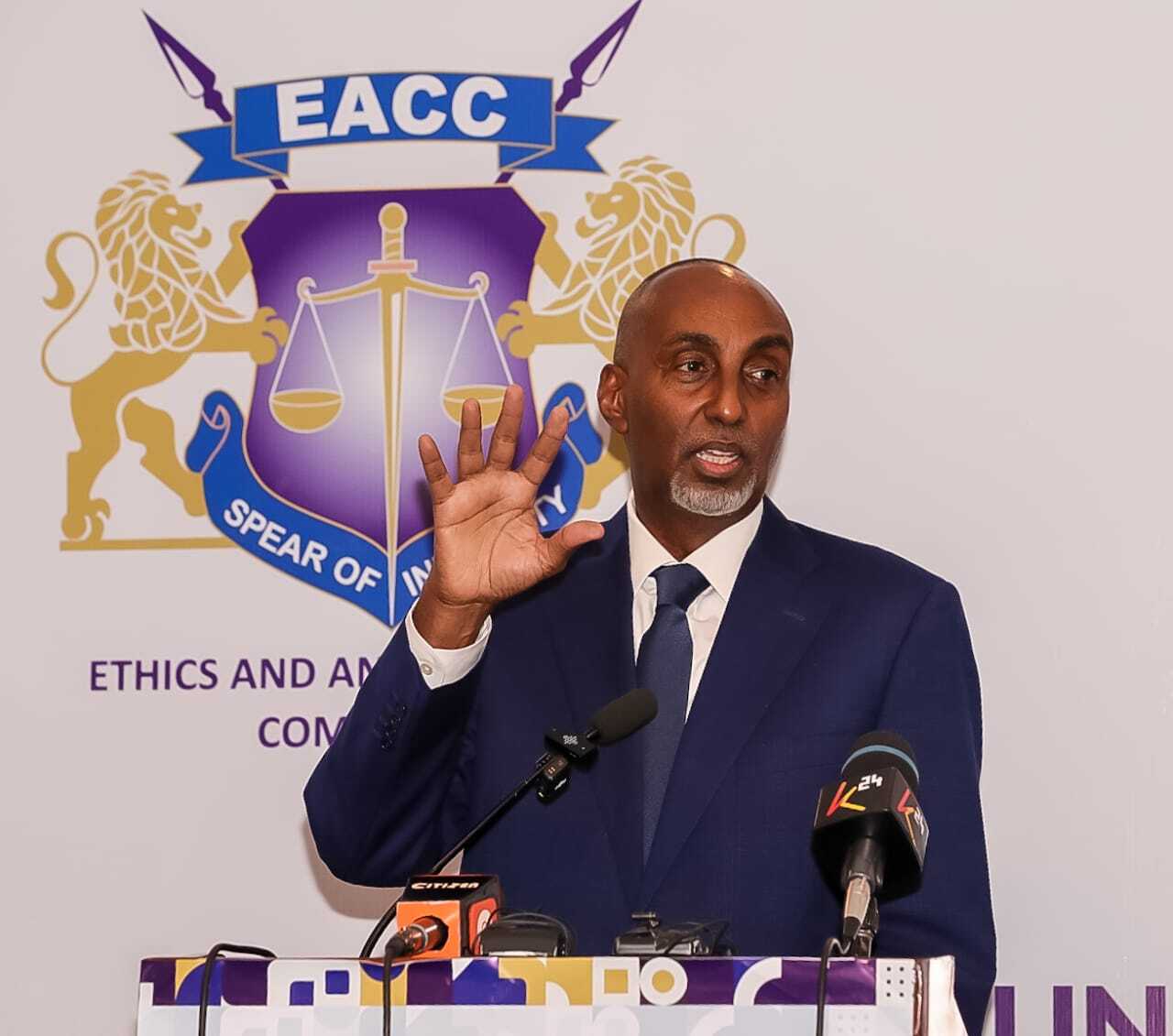Bribery tops list of corruption in public offices, EACC survey shows

The report shows that the government institutions where the largest bribes were paid on average include the Kenya Wildlife Service (Sh200,000), National Social Security Fund (Sh47,129), and the National Treasury’s Pensions Department (Sh40,000).
Giving bribes remains the most widespread form of corruption in public offices, followed by receiving of bribes, favouritism, abuse of office, tribalism, nepotism, and embezzlement of funds, the latest report by the Ethics and Anti-Corruption Commission shows.
According to the National Ethics and Corruption Survey 2024, corruption is now ranked as the second biggest problem in the country after unemployment.
Other concerns raised by respondents include poverty, high cost of living, poor health services, bad roads and weak leadership.
The study shows that the number of Kenyans seeking public services rose from 60.3 percent in 2023 to 65.2 percent in 2024. During that period, the average bribe dropped from Sh11,625 in 2023 to Sh4,878 in 2024.
However, some services still required heavy payments. Job seekers at county governments paid an average of Sh243,651 in bribes, followed by those trying to obtain national government tenders (Sh100,000), and those seeking Teachers Service Commission placements (Sh72,665).
The report shows that the government institutions where the largest bribes were paid on average include the Kenya Wildlife Service (Sh200,000), National Social Security Fund (Sh47,129), and the National Treasury’s Pensions Department (Sh40,000).
Uasin-Gishu County topped the list of counties with the highest average bribes at Sh25,873, followed by Baringo (Sh16,156), Embu (Sh12,878), Homa Bay (Sh12,381), Bomet (Sh11,650), Kakamega (Sh10,013), Tana River (Sh9,582), Kiambu (Sh7,982), Nyamira (Sh7,748) and Wajir (Sh7,275).
A large portion of those who paid bribes, 43.3 percent, said they did so because it was demanded, while 23.3 percent said it was the only way to get a service. Another 18 percent said they paid to avoid delays. Despite these incidents, 97.2 percent of the victims did not report the matter, with only 2.8 percent making a complaint.
The survey also showed that most Kenyans understand what counts as unethical behaviour in the public sector. It measured various aspects such as prevalence, likelihood, impact, and distribution of bribes across services, government offices, and counties.
The service, department and county with the highest average bribe were seeking county executive jobs, the Kenya Wildlife Service and Uasin-Gishu, respectively. The highest likelihood of corruption was linked to TSC placements, the Ministry of Labour and Social Protection and Kwale County.
EACC Secretary Abdi Mohamud said the report confirms that bribery remains deeply tied to unemployment.
“Indeed, we have heard of anecdotal reports that Kenyans pay very high amounts of bribes to secure positions in the public service.”
He urged government institutions to study the findings and develop preventive measures.
“Impact of bribery measures the extent to which paying a bribe influences the availability of services. The service, government department and county where bribery had the most impact were: seeking payment from the county executive, Nanyuki Water and Sewerage Company and Kakamega County, respectively,” he said.
The report also noted that while social media was the third most used platform in general, it ranked second when it came to accessing anti-corruption information. Facebook was the most preferred platform for that purpose.
The commission said it plans to work more closely with the public to improve awareness and support citizen monitoring of public services and projects, especially in health, security and infrastructure.
“The Government should foster an environment that encourages private sector growth and job creation to alleviate the urge to demand bribes while providing employment,” said Mohamud.
“Public institutions should develop robust policies that promote ethical decision-making and ensure accountability. Lastly, the government should create an environment that allows and encourages employees and citizens to speak up against any malpractices without fear, threats or intimidation.”
The commission carried out the survey between November 6 and December 1, 2024, across a sample of 5,960 households in all 47 counties.
The findings help the Commission report on its progress as required by Article 254 (1) of the Constitution, the Ethics and Anti-Corruption Commission Act, and the Leadership and Integrity Act.
The data is used to shape anti-corruption strategies and measure public experience and perception of corruption in Kenya.
